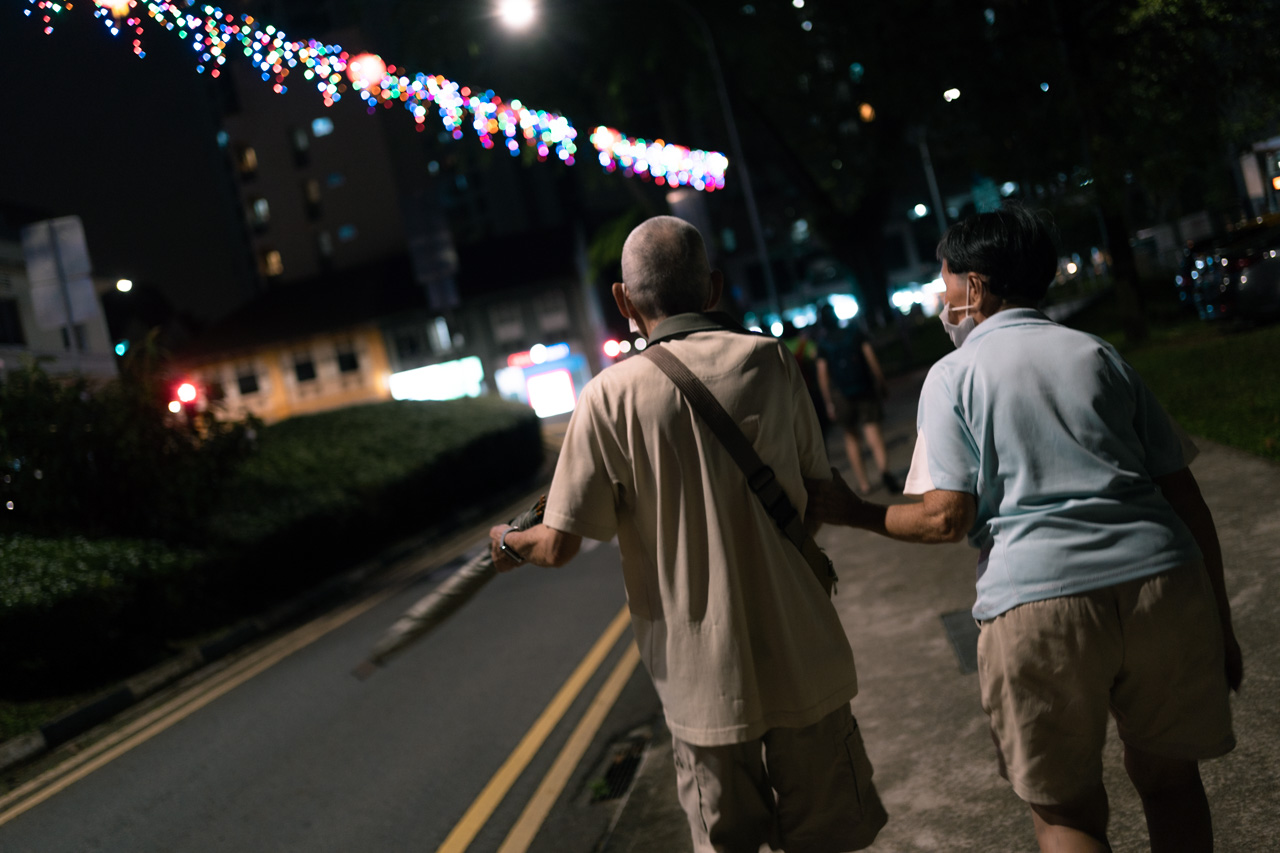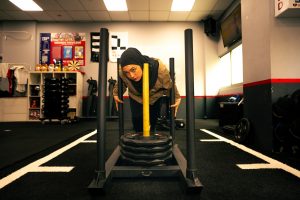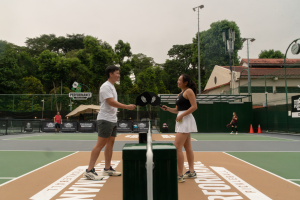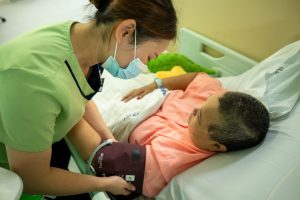Top image: Stephanie Lee / RICE file photo
Health is no longer confined to the doctor’s office. With just a few clicks, we’re diagnosing and medicating ourselves—drawing conclusions that can either empower or mislead us.
The Notion of Self, a new content series under Alt Ctrl Health, tackles this phenomenon head-on. We explore the thin line between autonomy and risk, sharing real stories of those who’ve taken their health into their own hands. What does this cultural shift mean for our relationship with health, technology, regulations, and each other in Singapore?
When you reject a call from your parents and they keep calling, you know it’s serious.
I couldn’t answer my mum at first. Rush-hour commuters had been forced out of the disrupted Circle Line MRT stations into the pouring Sumatra Squall. When I finally pressed my phone to my ear, her shaky voice tried to mask the panic as she told me my dad had collapsed at home.
All I could think about was getting home—fast. When I finally did, he was already doing alright, lying down on the sofa. We urged my dad to go to the hospital to check for injuries or any underlying conditions.
He refused. I didn’t push. I knew his reasons.
The last time this happened, we rushed him to the hospital, where he endured a barrage of tests only to be told there were no available beds. My dad, weakened and dizzy, had to lie in the waiting area for hours before they could finally admit him. The tests found nothing wrong with him in the end.
The entire ordeal wasn’t just costly and inconclusive; it left him feeling humiliated and powerless.
My dad’s reluctance to seek medical care isn’t unique. In fact, only a third of older adults here have a regular family doctor, which leads to delayed diagnoses and missed opportunities to catch serious conditions early. That’s exactly why the Ministry of Health (MOH) has been pushing for Singaporeans to build trusted relationships with family doctors—ones who can offer personalised health plans.
But the distrust many feel towards the system isn’t without reason. For years, people have had to deal with clinical experiences that made them feel like just another number. That indignity—being treated as a statistic—is enough to overshadow even their health concerns. And it’s not just the elderly who feel this way.
In a society like ours, where people are educated and empowered, the docile days of blindly trusting authority are over. Like my father, most Singaporeans don’t appreciate being told what to do. We want options and the freedom to make informed choices for ourselves.
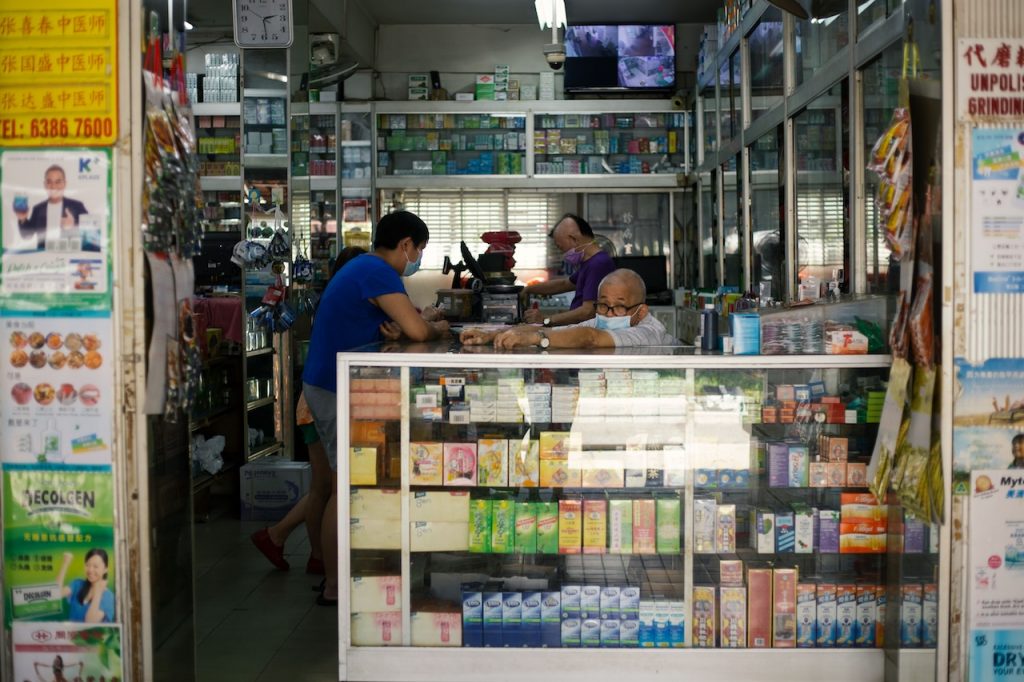
Avoidance and Bargaining
Honestly, I hate myself for not dragging my dad to the hospital. Not getting a senior checked out by a doctor after a symptom as severe as a sudden loss of consciousness is no different from playing Russian roulette.
Nothing matters more to me than my parents’ well-being. But their dignity is just as important—something my dad was stripped of while waiting hours in A&E after his last fall.
Yet, not testing for underlying conditions is a dangerous gamble. My dad knows this all too well, having lost many cousins and siblings to late diagnoses of serious illnesses.
Jess*, 39, isn’t a gambler either, but she too struggles to convince her 68-year-old mother to see a doctor. She finally made a breakthrough when she gave her mother an ultimatum: go see a doctor with her or stop receiving an allowance.
Jess has learned to look out for telltale signs. Her mother trusts praying more than Western medicine, so if Jess sees her reciting mantras more frequently and doing strange exercises she learned from WhatsApp group chats, Jess will ask her mother if she is experiencing some sort of pain or discomfort.
Alarm bells ring for Gary, 33, when he sees his father gulping down cups of hot water, eating porridge and cheng tng, because that’s his father’s preferred style of self-medication.
“My father will refute me with arguments like, ‘seeing a doctor is a waste of time’, ‘it’s leceh (troublesome)’. That it makes him feel weak and that he can get better on his own,” reveals Gary. He’s come to realise that emotional bargaining can defy logic, often rooted in pride and fear of looking vulnerable.
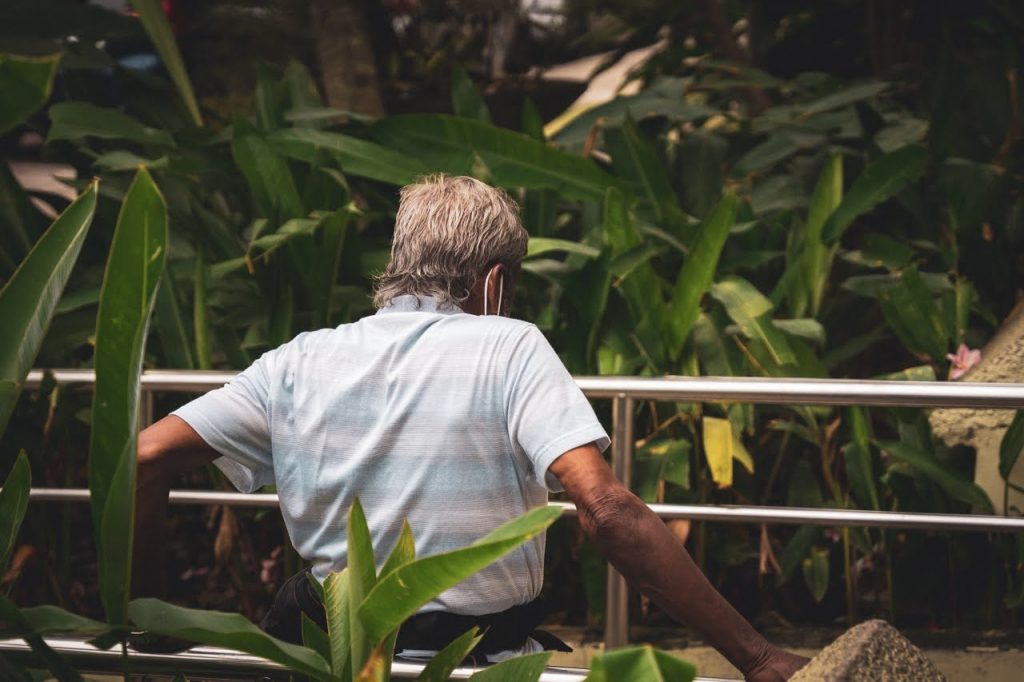
But it doesn’t have to come to threats. Nudging elders in the right direction is necessary, but their need for self-determination is just as valid. Younger people might be more aware of the need to see a doctor, but let’s be honest: pride and not wanting to seem weak isn’t just an old person thing.
Offering help isn’t just about throwing advice at people—it’s about knowing how to do it without stripping away their independence or making them feel small.
Because, at the end of the day, no one likes being talked down to.
A Distrust in the System
This distrust isn’t irrational. It often stems from systemic issues like poor communication and conflicting diagnoses that people have encountered over the years. These repeated inconsistencies erode trust, leaving many hesitant to engage with a system that feels more like an inconvenience than a solution.
Everyone has their own reasons for mistrusting the system when it comes to personal health—some are valid, others less so. Many are simply afraid of bad news that could upend their lives, strip away their independence, or push them into costly treatments they can’t afford.
So, what do people do when faced with limited options? Convinced they can handle things on their own terms, they turn to self-medication or alternative remedies. The confusion only deepens for a globalised population, where treatments banned in Singapore—like certain supplements, vaping products, and over-the-counter medications—are readily available and even embraced in other countries.
While these alternatives may seem like a way out, they can come with their own set of problems. Without proper guidance, people can misuse them, or worse, the wrong target audience might pick them up—leading to consequences that could have been avoided with the proper support.
Prohibition might feel like the safest bet, but is it truly the best approach? In an educated society, could we instead trust that with the right knowledge, people are capable of making informed choices?
Because not everyone navigates this easily. In some cases, self-diagnosis and self-medication can spiral into worse outcomes.
Take Wesley, 44, for example. When trying to convince his 73-year-old father to go for a medical check-up, it’s often a battle of wills. His father, suffering from a degenerative spinal condition, would rather down painkillers with alcohol than see a doctor. Only when the pain becomes unbearable does he finally give in.
“He thinks that doctors make him spend money on ‘unnecessary’ surgeries. He gets even more frustrated when different doctors share different opinions on his condition.”
This struggle is especially prevalent among Singapore’s ageing population, where the fear of financial strain and confusing messages often keeps seniors from getting the care they need.
That burden then falls on family members—like Wesley—who end up bridging the gap. They attend appointments, ask the right questions, and help translate medical jargon, doing the emotional labour where healthcare providers sometimes fail to connect with their elderly patients.
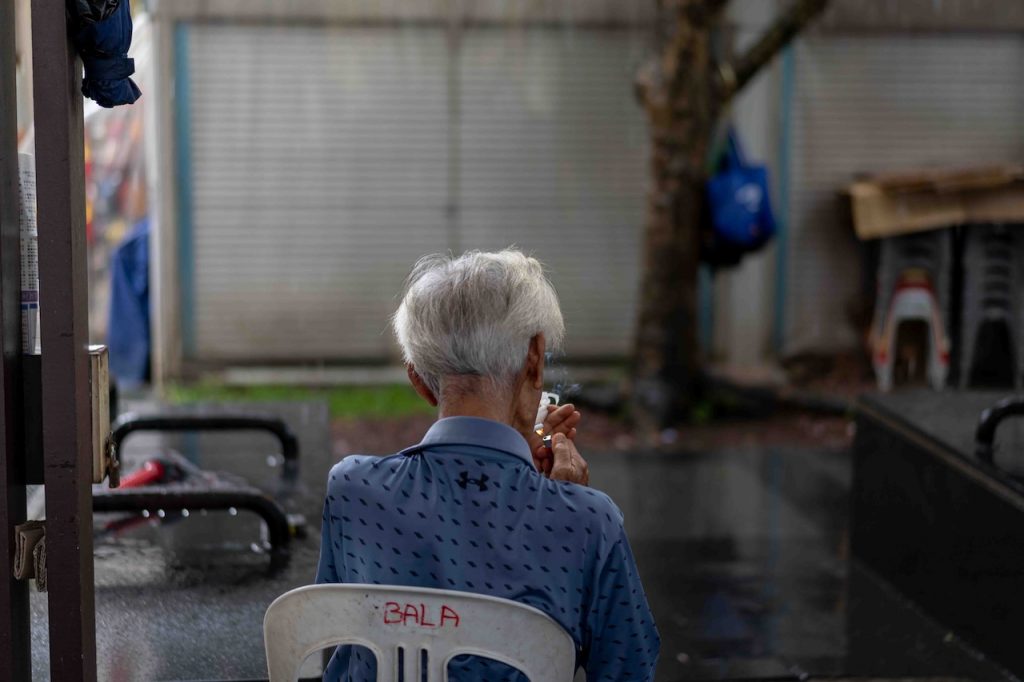
How to Rebuild Trust
Doctors and other authority figures, while competent, may not always have all the answers, especially when the right treatments can differ from person to person. The divide only deepens when patients feel reprimanded, or when treatment options are presented as black-and-white absolutes.
Instead, there’s a chance to become allies rather than harsh authority figures. By being more adaptable and in tune with the silent concerns of their patients, doctors can build trust. Empathy, after all, goes a long way in bridging the gaps left by systemic imperfections.
Take Jess’s mother, who has an intense fear of needles. It wasn’t the diagnosis or prescribed treatment that won her cooperation—it was the surgeon’s patience. He took the time to explain every aspect of the proposed surgery and its recovery, giving her the confidence to move forward. That simple act of clear communication made all the difference.
Thoughtful communication doesn’t just reassure the patient; it encourages family members to get involved too. Kate*, who had to support her elderly father through various medical appointments, found family discussions vital.
“Attitude plays a part in medical treatment, so if an older patient isn’t reassured or doesn’t have the right attitude, the interaction can quickly turn sour,” she affirms.
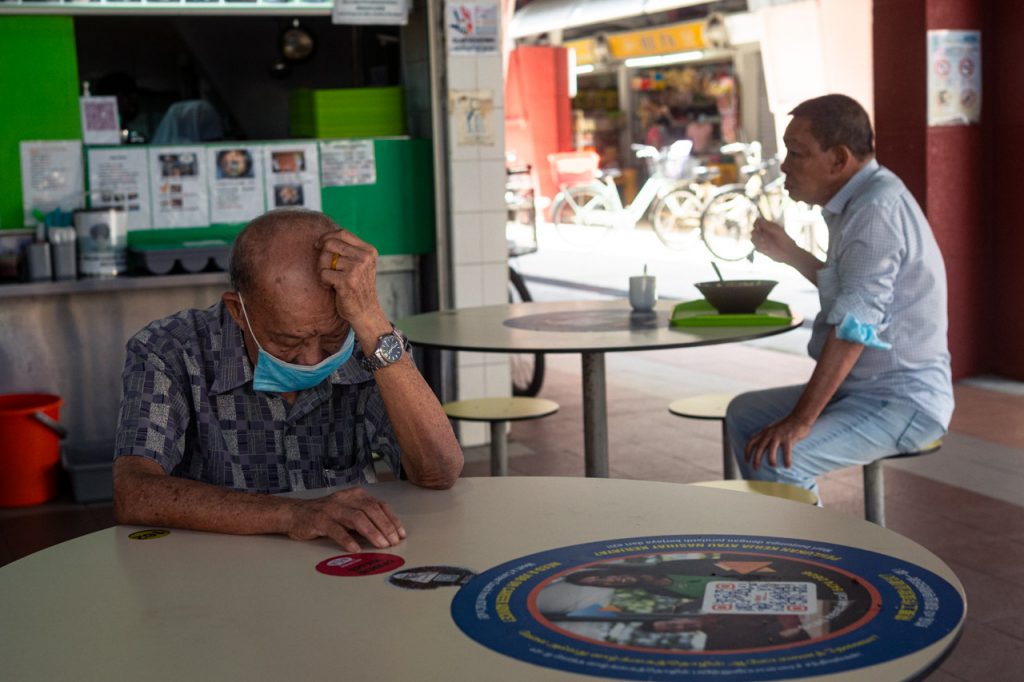
This is where healthcare professionals can make a difference—not by playing the role of dictators but by guiding patients to make decisions that suit their lives. In a highly educated society like ours, we appreciate it when we are respected enough to evaluate every single option out there. Especially when it concerns our own health.
For older folks, though, trust is harder to come by. Some have been let down by the system—poor communication, conflicting diagnoses—and it’s no surprise that alternatives can seem more appealing: whether that’s painkillers, traditional remedies, or simply refusing treatment. The fear of losing independence or facing hefty medical bills makes alternative options more tempting, even if they’re riskier.
Younger people aren’t immune, either. Whether it’s supplements, vaping, or the growing allure of alternative therapies, many turn to what feels like a lesser evil. And when they are forced to look overseas or rely on less-than-savoury options to treat themselves, it leaves people wondering if the system here is denying them viable choices.
It’s not about rigid protocols or forcing compliance; it’s about empowering individuals to make their own decisions with clarity and confidence. With better guidance, people like my father can manage their health without outrightly dismissing valid help.
Seeing my dad’s recent progress gave me a wave of relief. It’s been over a week since his fall, and most of his strength has returned. Yet, I can’t shake the worry that if another health scare hits, he might resist going to the hospital again.
But I’m holding onto the hope that by keeping our conversations open and honest, we can tackle whatever comes next together.

